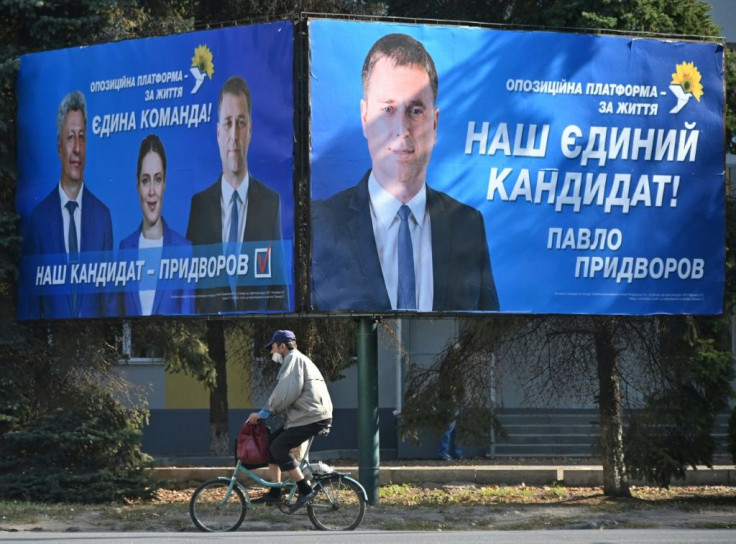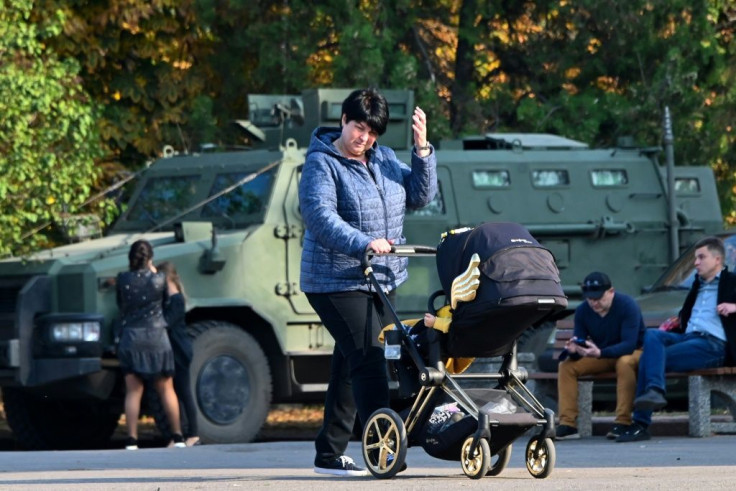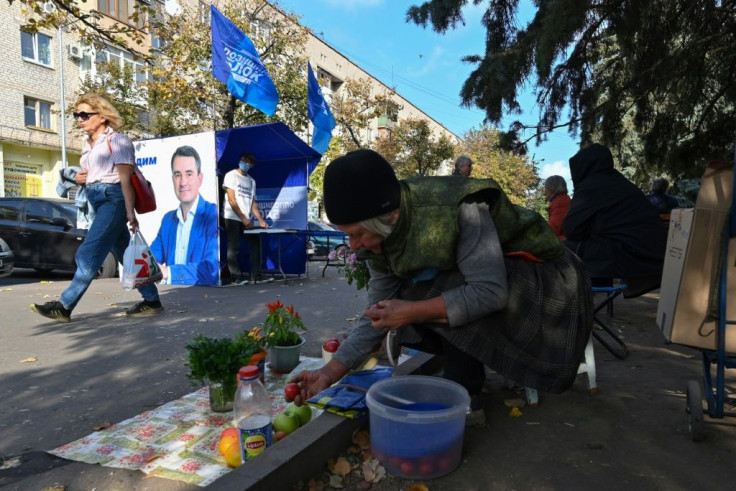Ukraine's Zelensky Struggles To Impress In War-battered East
President Volodymyr Zelensky rose to power last year on a pledge to end the conflict in eastern Ukraine which has left Russia-backed separatists controlling two areas of the country and thousands dead.
But nowhere has the failure so far to fulfil that pledge fallen more flat than in the east itself, where Russian-speaking inhabitants yearn for a future of harmonious cultural and commercial ties with their giant neighbour.
In local elections on Sunday, the Servant of the People party of Zelensky -- a former comedian who had no political experience before becoming Ukraine's president -- is set to be heavily defeated in the very area where it promised the most.
"People are disappointed," Vira Yurik, a 58-year-old pensioner, said as she walked the streets of Slovyansk.
"I stayed here all the war, under the bombing. It was impossible to fall asleep, we ran for water, lived without light, without food, without money, but we have survived," Yurik said.

Slovyansk, located just 60 kilometres (37 miles) from the frontline, had been a flashpoint in the conflict that erupted in 2014 and has left 13,000 dead.
In April 2014 it was seized by Moscow-backed fighters but after three months of fierce fighting the town was retaken by the Ukrainian army, in the first major victory for Kiev.
While in the Donetsk region of eastern Ukraine, it is fully under control of the Kiev government and not part of the breakaway Donetsk Republic declared by separatists or a similar unrecognised region in neighbouring Lugansk.

Like many in Slovyansk, Yurik says she will vote for the most popular among Moscow-friendly parties, the Opposition Platform, one of whose leaders is the veteran pro-Russia politician Viktor Medvedchuk, a close ally of President Vladimir Putin.
"We speak Russian here... we border on Russia, Russia is close to us," she said.
"They are for peace," said Yurik adding the pro-Moscow parties could restore political and economic ties with Russia as well as agree a lasting peace deal.
Although the government and volunteers have repaired a local school and several other buildings damaged in the fighting, the horrors of the war still remain seared into the memory of the locals.
A shaky three-month-old ceasefire that came into force in late July is Zelensky's only tangible achievement, and eagerly-awaited talks with Putin in Paris in December brought the sides no closer to a lasting settlement.

Recent opinion polls showed that up to 60 percent of voters in the areas of the eastern Donetsk and Lugansk regions controlled by Kiev were ready to cast their ballot for one of several Russia-friendly parties.
At the same time, only some ten percent of voters voiced their support of Zelensky's Servant of the People party, named after the television series he starred in where he played a teacher who unexpectedly becomes president.
"Only one party can end the war and resume peace," Volodymyr, 59, a Slovyansk resident, who was an officer in the Soviet army, told AFP, referring to Opposition Platform.
"And all those who promised the European Union here, Zelensky for example, they are all liars," he said, holding an Opposition Platform campaign newspaper.
The town is full of the opposition's largely white and blue campaign billboards -- the same colours used by the now moribund Regions Party, whose leader and Kremlin-backed president Viktor Yanukovych was ousted in 2014.
Attitudes in the east of Ukraine are a far cry from those in Kiev, let alone the staunchly Ukrainian-speaking west of the country.
But in a worry for Zelensky, his party's troubles are not just restricted to the east.
"In this region, pro-Russian sentiments existed, exist and will exist," Kiev-based political analyst Volodymyr Fesenko told AFP.
But he said Zelensky's and his party support rates were in decline across the whole country, due to the coronavirus pandemic and economic crisis.
"People hoped for the end of the war (when they voted for Zelensky), but it turned out differently," Fesenko said.
"The inflated expectations of people have gone, and been replaced with the epidemic and the crisis."
A rare pro-Ukrainian activist in the region said the locals' views were driven by the fact that many -- especially the elderly -- still gravitated towards the Soviet past.
"People are ready to support the pro-Russian parties, since they touch a nerve with those who live in this industrial region," said Roman Balaboiko, a 33-year-old historian.
© Copyright AFP 2024. All rights reserved.





















